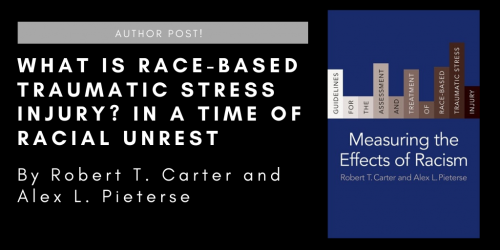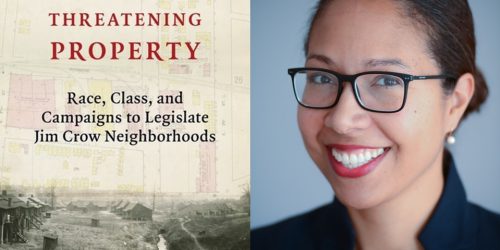Hubert Harrison: “The Father of Harlem Radicalism”
By Jeffrey B. Perry

“This is a superb study of a neglected but powerfully influential figure in African American history. Jeffrey B. Perry’s scholarship is formidable; his documentation, impeccable; his writing, lucid and graceful. If his promised second volume is as admirable and compelling as his first, then we would have to count him, with gratitude, among the finest living biographers of black men and women—indeed, one of our finest biographers, without reservation.”
~Arnold Rampersad, biographer of Langston Hughes and professor of English and Sara Hart Kimball Professor in the Humanities, Stanford University
We are kicking off our Harlem Week 2020 celebration with a feature on Hubert Harrison. Harrison was an immensely skilled writer, orator, educator, critic, and political activist who, more than any other political leader of his era, combined class consciousness and anti-white-supremacist race consciousness into a coherent political radicalism. The foremost Black organizer, agitator, and theoretician of the Socialist Party of New York, Harrison was also the founder of the “New Negro” movement, the editor of Negro World, and the principal radical influence on the Garvey movement. In today’s post, Jeffrey B. Perry, author of the two-volume set, Hubert Harrison: The Struggle for Equality, 1918–1927 (coming November 2020) and Hubert Harrison: The Voice of Harlem Radicalism, 1883–1918 reveals just how important Harrison was to Harlem, and his role in the struggle for civil rights.
• • • • • •
The forthcoming (November 2020) publication of Hubert Harrison: The Struggle for Equality, 1918–1927 follows the earlier Columbia University Press publication of Hubert Harrison: The Voice of Harlem Radicalism, 1883–1918. This two-volume biography, based on extensive use of the Hubert H. Harrison Papers and diary, is believed to be the first full-life, multivolume, biography of an Afro-Caribbean and only the fourth of an African American after those of Booker T. Washington, W. E. B. Du Bois, and Langston Hughes.
Harrison, born in St. Croix, Virgin Islands and based in Harlem, merits such attention. He was a brilliant, autodidactic, working-class, race- and class-conscious writer, orator, editor, educator, book reviewer, political activist, and radical internationalist. The historian Joel A. Rogers described him as “perhaps the foremost Aframerican intellect of his time,” and the labor and civil rights activist A. Philip Randolph described him as “the father of Harlem radicalism.”
As detailed in these volumes, Harrison played unique, signal roles in the largest class-radical movement (socialism) and the largest race-radical movement (the “New Negro”/Garvey movement) of his era. He was a major influence on the class radical Randolph, on the race radical Marcus Garvey, and on other militant New Negroes and “common people” in the 1910s and 1920s. Considered the most class conscious of the race radicals and the most race conscious of the class radicals in those years, Harrison is a key link in two great strands of the Civil Rights/Black Liberation struggle—the labor and civil rights movement associated with Randolph and Martin Luther King Jr. and the race and nationalist movement associated with Garvey and Malcolm X.
“Considered the most class conscious of the race radicals and the most race conscious of the class radicals in those years, Harrison is a key link in two great strands of the Civil Rights/Black Liberation struggle—the labor and civil rights movement associated with Randolph and Martin Luther King Jr. and the race and nationalist movement associated with Garvey and Malcolm X.”
During the 1910s and 1920s he was said to be either the creator or among the founders of “almost every important development originating in Negro Harlem—from the Negro Manhood Movement to political representation in public office, from collecting Negro books to speaking on the streets, from demanding Federal control over lynching to agitation for Negroes on the police force.” He was a key figure in struggles against white supremacy and for political and economic equality, true “democracy,” and “international colored unity.”
Hubert Harrison: The Voice of Harlem Radicalism, 1883–1918 detailed how from 1911 to 1914 Harrison was a pioneer Black activist in the freethought and birth-control movements and served as the leading Black theoretician, speaker, and activist in the Socialist Party of America. He maintained that “politically, the Negro is the touchstone of the modern democratic idea. The presence of the Negro puts our democracy to the test and reveals the falsity of it . . . [True democracy and equality implies] a revolution . . . startling to even think of.” He also asserted that “the mission of the Socialist Party is to free the working class from exploitation, and . . . the duty of the party to champion . . . [the Negro’s] cause is as clear as day. This is the crucial test of Socialism’s sincerity.”
Socialist Party statements and practices, however, caused him to leave the party in 1914. After departing, he offered what is arguably the most profound but least heeded criticism in the history of the United States left—that Socialist Party leaders, like organized labor leaders, put the “white race” first, before class, that they put “Race First and class after.”
“[Harrison] offered what is arguably the most profound but least heeded criticism in the history of the United States left—that Socialist Party leaders, like organized labor leaders, put the ‘white race’ first, before class, that they put ‘Race First and class after.’”
Within two years Harrison turned to concentrated work in the Black community. Beginning in 1916, he served as the intellectual guiding light of the militant New Negro Movement”—a race-conscious, internationalist, mass-based, autonomous, militantly assertive movement for “political equality, social justice, civic opportunity, and economic power.” This movement, represented by his newspaper, The Voice, and his organization, the Liberty League, involved many outstanding activists, viewed itself as consciously breaking from the “old time leaders,” laid the basis for the growth of the Garvey movement, and was a precursor to later developments, including the Black Power movement, the antiwar and anti-imperialist movements, and (with its calls for enforcement of the Thirteenth, Fourteenth, and Fifteenth Amendments and for federal antilynching legislation) the Civil Rights movement.
Hubert Harrison: The Struggle for Equality, 1918–1927, details the extraordinary last nine and one-half years of Harrison’s life, which were lived at the edge of poverty in a United States shaped by capitalism, imperialism, and white supremacy. Harrison had been a leader in struggle against those forces, but he had found that the left and labor movements put the white race first, before class. In that context, he deemed it a priority to work at developing an enlightened race consciousness, racial solidarity, and radical internationalism among Black people—especially the “common people”—in struggles for political equality and true democracy, against white supremacy, and for radical social change.
This second volume is presented in roughly chronological order. It begins when Harrison returns to New York after cochairing (with William Monroe Trotter) the Liberty Congress, a major Black national protest effort during WWI, and it has four broad sections:
- Part 1 (1918–1919) covers Harrison’s pioneering, seminal, and long-ignored writings (particularly in The Voice and the New Negro) and work that gave direction to the militant New Negro Movement that he had founded in 1916.
- Part 2 (1920-–1922) details Harrison’s outstanding contributions and impact as a writer for and editor of Marcus Garvey’s Negro World and discusses his important differences with Garvey and makes clear that Harrison’s writings and literary influence (including editorials and “Book Review,” “Poetry for the People,” “West Indian News Notes,” and theater review columns) contributed significantly to the climate leading up to Alain Locke’s influential 1925 publication The New Negro.
- Part 3 (1922–1924) focuses on Harrison’s prolific and wide-ranging writing and speaking efforts as an independent “Free-Lance Educator,” including his work as a public lecturer with the New York City Board of Education and as a regular columnist for the Boston Chronicle.
- Part 4 (1924–1927) examines Harrison’s innovative and more broadly unitary efforts in his last years, including the founding of The International Colored Unity League and its organ, The Voice of the Negro, and his lecturing on “World Problems of Race.”
While telling the important story of his life between 1918 and 1927 this second volume aims to deepen the growing appreciation of Harrison and his work. Drawing from his writings, talks, diary, scrapbooks, correspondence, and other primary- and secondary-source materials, it offers important insights on the period in which he lived, on prominent contemporaries and other key figures, and on a wide array of political and literary subjects.
Harrison’s most personally revealing document is his diary. While he wrote his diary for himself, there is no doubt from its content and occasional marginal comments that it was also written for those who would come after him to read and learn from. He was aware of the importance of the work he undertook, and he thought it important that a more complete record of his thinking and actions, as well as the period in which he lived, be recorded—“as it comes so must it be set down.” This biography, reinforcing the importance and value of Harrison’s approach, and in an effort to allow him to speak to current and future audiences, often cites his diary, papers, writings, and talks.
In its approach this biography also draws insight from comments by three of Harrison’s contemporaries—Eugene O’Neill, J. A. Rogers, and Arthur Schomburg.
O’Neill, a future Nobel Prize in Literature–winning author, wrote to Harrison that “the only propaganda that ever strikes home is the truth about the human soul, black or white. Intentional uplift . . . never amount[s] to a damn—especially as uplift. To portray a human being, that is all that counts.”
The historian Rogers, offered: “Harrison was not without his faults. . . —‘No man is a hero to his valet.’ ” In Harrison’s case, however, Rogers emphasizes, this is no reason to “deny” his “essential greatness.”
At Harrison’s funeral, Schomburg, an extraordinary bibliophile of the Black experience, with great historical perspective and knowing how immensely popular and important Harrison was in his day, stated simply (in words that partly inspired the writing of this two-volume biography): “He came ahead of his time.” Thus, with these words, Schomburg highlights Hubert Harrison’s importance for current and future generations.



